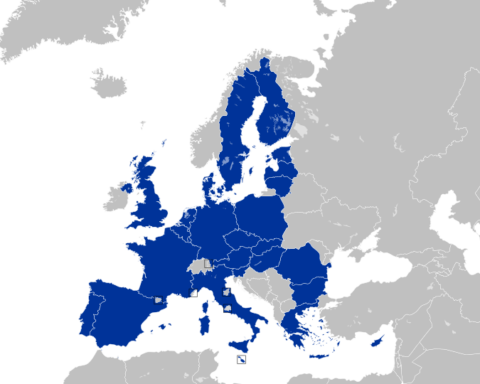Follow the trail blazed by Bilbao Port Authority and appeal to the European Union’s law courts to make your case. This is the last resort. Perhaps there’s no other way around it for a country that, unlike Spain, has refused to unconditionally adhere to the EU’s request to apply corporate income tax (IRES) to Port Authorities’ economic activities.
Francesco Maria di Majo’s complex mediation starts here and from the awareness that Italy has now played almost all its cards. “It is difficult to imagine that Brussels will go back on its tracks” affirms the president of Civitavecchia Port Network Authority who, in Assoporti, has an important mandate on relations with the European Union.
Under Article 108(2) TFEU and Article 22 of Council Regulation 1589/2015, the Commission concluded that the exemption from corporation tax applicable to port authorities constitutes unlawful State aid.
The truth lies in the vast amount of legal documentation that the EU and the European Court of Justice itself have produced on the issue. France, Belgium, and now Madrid: the comparison with these countries (whose ports pay taxes) pins Italy to an unsafe future, exposing it to a very high risk of infringement proceedings.
The possibility of a conciliation with Brussels is therefore ruled out. There is only one option left: to follow Bilbao i.e. to oppose the European Commission’s decision.
“It’s an obstacle course,” admits Mr di Majo, who envisages two possibilities.
The first is that Assoporti should participate in the proceedings as an ad adiuvandum speaker. “Such a position, however, would clash with the European Court’s very restrictive procedural rules; the Association would have to demonstrate a legally plausible interest in a favorable outcome of the dispute.”
The second is that it is the Government itself should intervene alongside the Basque Port Authority. “In this case, however, we would risk a diplomatic incident with Spain, as the Basque Port Authority has gone against Spain’s decisions, in some way.”
Whatever way you look at it, in short, Italy risks being snubbed with a two of spades from Brussels. However, tertium non datur: There are no other options left.
But why is the Bilbao appeal so important? Mr. di Majo sums it up like this: “the applicant claims that the exemption from corporation tax not only does not constitute an advantage but, on the contrary, allows the Port Authority to tackle investments of public interest which, otherwise, would have to be borne by the State.”
Like the Italian Port Authorities, the Iberian ones support themselves on the basis of the financial autonomy principle. “Such a principle implies that the revenues from the state port system’s daily activities should be used to cover not only operating expenses but also the need for new investments that allow ports to remain competitive”.
The concept, after all, is simple: Since Port Network Authorities have to meet essential infrastructure obligations, tax exemption from IRES does not give them an economic advantage. “‘In this respect, I agree with what the Bilbao Authority argued in its appeal, namely that the tax benefits would serve no other purpose than to compensate the port authority for the financial disadvantage of having to cater for infrastructure investments of public interest’.
But even if the tax exemption from corporate income tax were to be considered as State aid, “such a measure could be declared compatible in the light of the cases provided for in Article 107(3) TFEU, as also set out in the recent General Block Exemption Regulation (GBER) No 1084 of 2017 on aid to port and airport infrastructure.”
“Our resolution must be this: to make the EU understand that all the investments by Port Authorities go towards safeguarding the accessibility of ports and their competitiveness, regardless of who the private users are.”
All roads lead to Bilbao, then. It remains to be seen who will make the first move: Assoporti or the Italian Government, and what the consequences will be.
Translation by Giles Foster




